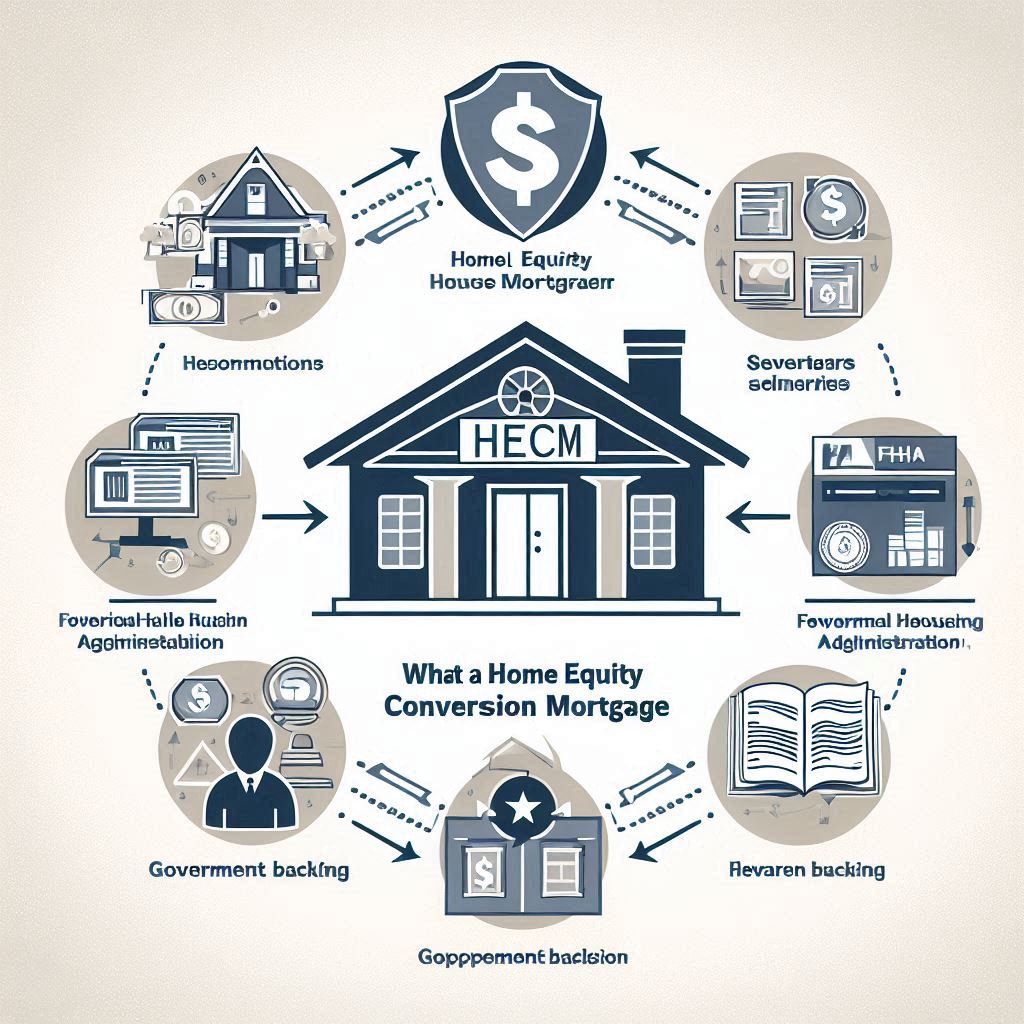What is a Government-Insured Reverse Mortgage and How Can It Benefit You?

For many seniors looking to leverage the equity in their homes, a reverse mortgage can be a viable solution. But with numerous options available, it’s important to understand the specifics, especially when it comes to government-insured reverse mortgages. So, what is a government-insured reverse mortgage and how can it benefit you? This blog post will provide a comprehensive overview, ensuring you have all the information you need to make an informed decision.
Understanding Government-Insured Reverse Mortgages

A government-insured reverse mortgage, officially known as a Home Equity Conversion Mortgage (HECM), is backed by the Federal Housing Administration (FHA). This program was created to help seniors aged 62 and older tap into their home equity to supplement retirement income without having to sell their homes or take on additional monthly mortgage payments.
Key Features of a Government-Insured Reverse Mortgage

- No Monthly Mortgage Payments: One of the most attractive features of an HECM is that it does not require monthly mortgage payments. Instead, the loan balance, including interest and fees, is repaid when the homeowner sells the home, moves out permanently, or passes away.
- Flexible Payment Options: Borrowers can choose how they receive the loan proceeds. Options include a lump sum, monthly payments, a line of credit, or a combination of these. This flexibility allows homeowners to tailor the loan to their financial needs and goals.
- Non-Recourse Loan: A HECM is a non-recourse loan, meaning that you or your heirs will never owe more than the home’s value when the loan is repaid. This protects borrowers from owing more than the home is worth, even if the loan balance exceeds the property’s value due to declining market conditions.
- Government Backing: Being insured by the FHA provides an added layer of security for both the lender and the borrower. The government guarantees the loan, which means you’re protected if the lender defaults.
Eligibility Requirements
To qualify for a government-insured reverse mortgage, you must meet certain criteria:
- Age Requirement: You must be at least 62 years old.
- Home Ownership: You must own the home outright or have a low mortgage balance that can be paid off at closing with the proceeds from the reverse mortgage.
- Primary Residence: The property must be your primary residence.
- Property Type: Eligible properties include single-family homes, multi-family homes (up to four units), FHA-approved condominiums, and some manufactured homes.
- Financial Assessment: You must undergo a financial assessment to ensure you can afford to maintain the property, including paying property taxes, homeowner’s insurance, and any other property-related expenses.
The Application Process

- Counseling Session: Before you can apply for a HECM, you must complete a counseling session with a HUD-approved counselor. This session ensures that you understand the implications of a reverse mortgage and explore other financial options.
- Choose a Lender: Research and select an FHA-approved lender. Consider factors like interest rates, fees, and customer reviews.
- Submit an Application: Provide necessary documentation, including proof of age, homeownership, and income.
- Appraisal: The lender will order an appraisal to determine your home’s value and ensure it meets FHA requirements.
- Approval and Closing: Once approved, you’ll close on the loan, and the funds will be disbursed according to your chosen payment plan.
Benefits of a Government-Insured Reverse Mortgage

- Supplement Retirement Income: A HECM can provide additional income to cover living expenses, medical bills, or other financial needs, helping you maintain your standard of living in retirement.
- Stay in Your Home: Unlike selling your home to access its equity, a reverse mortgage allows you to stay in your home, maintaining your independence and comfort.
- Tax-Free Proceeds: The money you receive from a reverse mortgage is generally tax-free, as it’s considered a loan and not income.
- Flexible Use of Funds: There are no restrictions on how you can use the proceeds from an HECM. Whether you need to pay off existing debt, cover healthcare costs, or even travel, you have the freedom to use the funds as you see fit.
- No Impact on Social Security or Medicare: Proceeds from a reverse mortgage do not affect your Social Security or Medicare benefits. However, it’s essential to consult a financial advisor if you receive other need-based benefits, as they may be impacted.
Conclusion
A government-insured reverse mortgage, or HECM, can be a valuable financial tool for seniors looking to enhance their retirement income while staying in their homes. By understanding the key features, eligibility requirements, and benefits, you can make an informed decision about whether a reverse mortgage is the right choice for you. As with any significant financial decision, it’s essential to seek advice from trusted financial professionals and thoroughly research your options to ensure you make the best choice for your unique situation.





